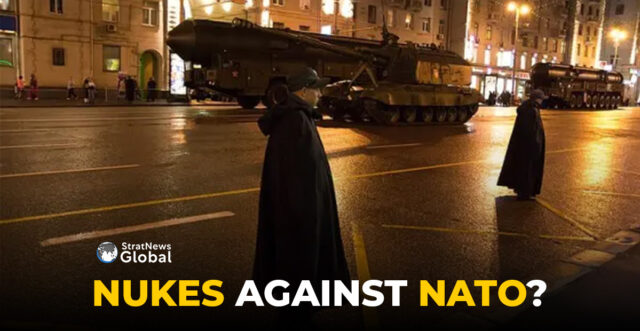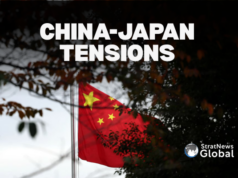Russia should clearly state its willingness to use nuclear weapons against countries that
“support NATO aggression in Ukraine”, according to an influential foreign policy hawk who is pressing President Vladimir Putin to adopt a more assertive nuclear posture towards the West.
Sergei Karaganov told Kommersant newspaper in an interview that Moscow could launch a limited nuclear strike on a NATO country without triggering all-out nuclear war.
The United States, he added, was lying when it said that it guaranteed nuclear protection to its allies.
The main goal of Russia’s nuclear doctrine, Karaganov said, “should be to ensure that all current and future enemies are sure that Russia is ready to use nuclear weapons”.
In comments published weeks after Ukraine captured a part of Russia’s Kursk region, from which Moscow’s forces are still fighting to eject it, he said:
“It is time to declare that we have the right to respond to any massive strikes on our territory with a nuclear strike. This also applies to any seizure of our territory.”
Karaganov’s statements are closely watched by Western security experts as an indicator of Russian thinking on foreign, defence and nuclear policy.
His opinions do not represent official policy but the Kremlin has given him repeated opportunities to voice them in influential forums and put them directly to President Vladimir Putin.
For more than a year, he was the most prominent figure calling for changes to Russia’s nuclear doctrine, which Moscow has now said it will revise.
The current doctrine states that Russia would be prepared to use nuclear weapons in response to a nuclear attack by another country or a conventional attack that threatened the existence of the state.
That doctrine was irresponsible and even suicidal, Karaganov said, however, because it did not adequately deter Russia’s enemies and led them to believe there were hardly any
circumstances in which Moscow would use a nuclear weapon.
Russia was heading for disaster unless it succeeded in shifting that assumption and re-establishing deterrence, he said.
Two-and-a-half years into its war with Ukraine, it risked bleeding itself dry on the battlefield and exhausting itself economically, something that could lead to “decline and possibly even collapse”.
With Reuters inputs
Thirty eight years in journalism, widely travelled, history buff with a preference for Old Monk Rum. Current interest/focus spans China, Technology and Trade. Recent reads: Steven Colls Directorate S and Alexander Frater's Chasing the Monsoon. Netflix/Prime video junkie. Loves animal videos on Facebook. Reluctant tweeter.





